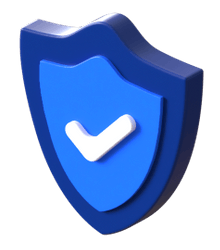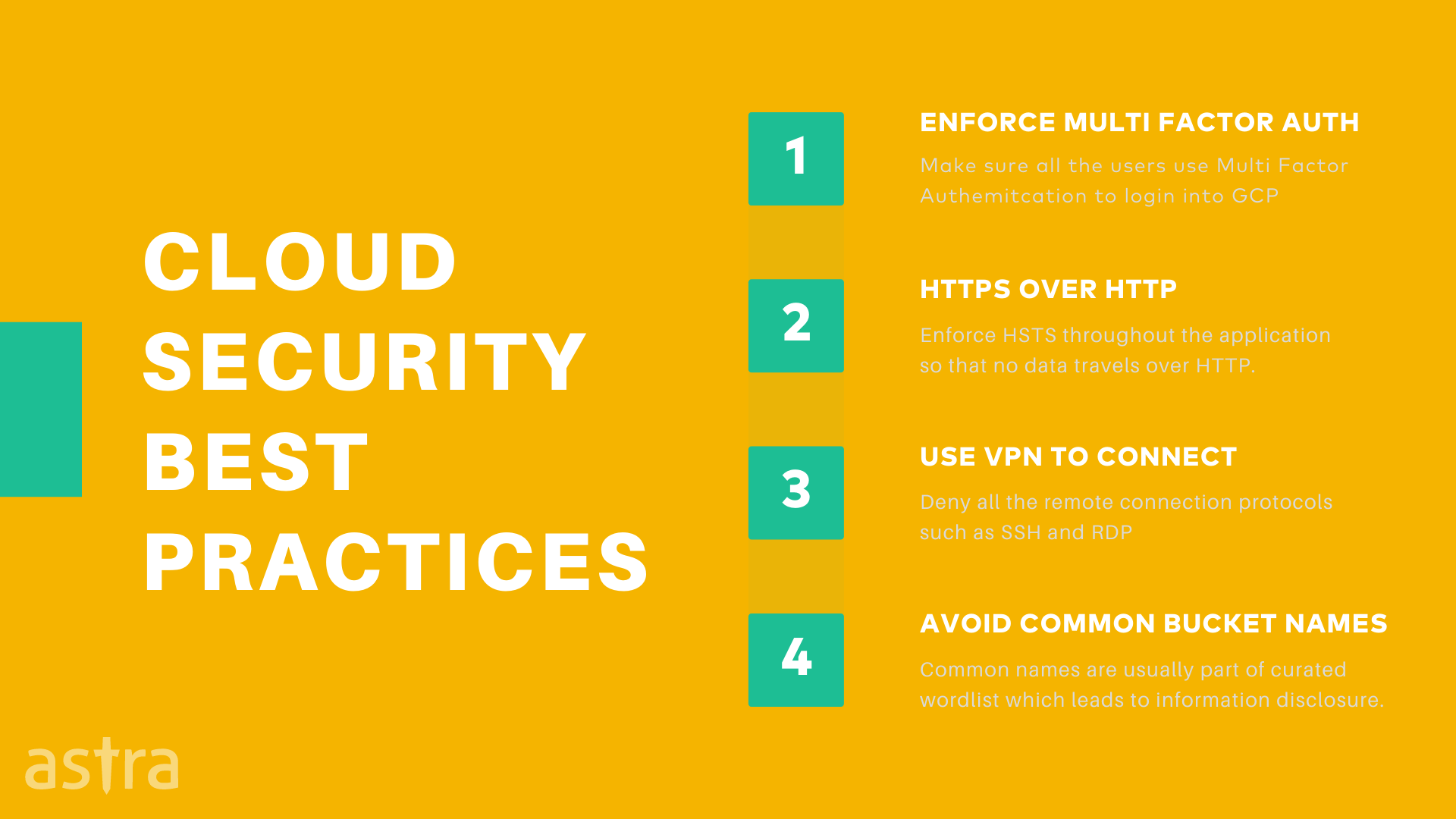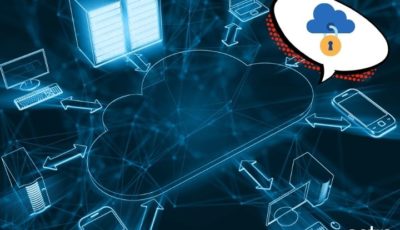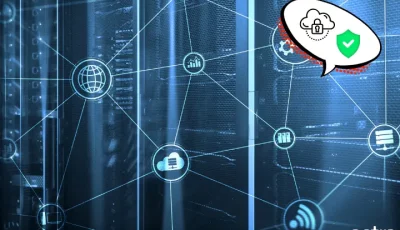In recent years cloud computing has become so popular within enterprises because of several reasons such as fast scale-up, pay-as-you-go, resources can grow as the business grows and so many more. But in the world of information technology, whatever we do we have to consider cybersecurity. So here comes the Enterprise Cloud Security.
In this blog, we will discuss the following topics.
- What is enterprise cloud and its security?
- What is the relevance of enterprise cloud security?
- How to improve Enterprise Cloud Security?
Why is Astra Vulnerability Scanner the Best Scanner?
- Runs 8000+ tests with weekly updated scanner rules
- Scans behind the login page
- Scan results are vetted by security experts to ensure zero false positives
- Integrates with your CI/CD tools to help you establish DevSecOps
- A dynamic vulnerability management dashboard to manage, monitor, assign, and update vulnerabilities from one place.
- Helps you stay compliant with SOC2, ISO27001, PCI-DSS, HIPAA, etc.
- Integrates with Slack and Jira for better workflow management
- Trusted by the brands you trust like Agora, Spicejet, Muthoot, Dream11, etc.

What is Enterprise Cloud Security?
Enterprise cloud security refers to the set of practices, technologies, policies, and measures put in place by organizations to protect their data, applications, and infrastructure when using cloud computing services for their business operations. There are various components we need to consider when we talk about cloud security such as Cloud deployment models, cloud-shared service models, etc.
But, before diving in deeper, let’s understand briefly why enterprises are so interested in cloud computing and storage in the first place.
Cloud computing refers to the convenient and instant utilization of computing assets such as applications, servers, data repositories, development utilities, networking capacities, and beyond. These resources are stored in faraway data centers managed by a cloud services provider. This approach offers significant advantages including saving on IT costs, easily adjusting resources based on needs, better performance, and increased reliability.
Private Cloud vs Public Cloud vs Hybrid Cloud
- Private Cloud provides dedicated resources to a single organization, granting control, security, and customization. It suits industries with stringent data privacy needs but involves higher upfront costs.
- Public Cloud shares resources among users through third-party providers, offering scalability and cost efficiency. It’s ideal for dynamic workloads with a pay-as-you-go pricing model.
- Hybrid Cloud combines both, allowing organizations to utilize private resources for sensitive data and public resources for scalability. This model demands careful workload allocation and integration expertise but achieves flexibility.
Managing cloud security is vital in these cloud deployment models. While, the private cloud provides dedicated resources and control, ideal for sensitive data and compliance, the public cloud shares resources with provider security but demands user-level data protection. Conversely, the hybrid cloud blends both models, segregating data and tasks. Security relies on strong access controls, encryption, monitoring, and compliance auditing. Having a detailed cloud security checklist can aid in implementing security within different cloud deployment models.
There are mainly 3 types of Cloud Shared Service Models.
Software as a Service(SaaS) – Fully developed apps accessed via the web. Users share software instances hosted by the provider, reducing local installation and maintenance efforts.
Platform as a Service(PaaS) – Developers access platforms to build apps; provider handles infrastructure. Users share a runtime environment for streamlined application development.
Infrastructure as a Service(IaaS) – Virtualized computing resources like VMs and storage rented over the internet, allowing scalable and flexible infrastructure sharing.
Security is crucial in all cloud models. IaaS users secure VMs, PaaS requires app-level protection, and SaaS demands user access vigilance. Encryption, authentication, and monitoring are key across the models.
What is the Relevance of Enterprise Cloud Security?
The cloud security in enterprises is paramount for several reasons:
1. Data Protection: Data protection is crucial in enterprise cloud security to safeguard sensitive information from unauthorized access, breaches, and cyber threats. It ensures compliance, preserves reputation and maintains trust among customers, partners, and stakeholders.
2. Compliance: Compliance is vital to adhere to industry regulations (e.g., GDPR, HIPAA), ensuring sensitive data protection, avoiding penalties, and maintaining trust with customers by demonstrating a commitment to safeguarding their information.
3. Cyber Threats: In the realm of enterprise cloud security, cyber threats encompass malicious activities like hacking, data breaches, and ransomware attacks. These threats target sensitive data and infrastructure, underscoring the urgency of robust security measures to safeguard digital assets and maintain business resilience.
4. Multi-Tenancy Risks: Multi-tenancy in the enterprise cloud involves multiple users sharing resources. Risks arise as inadequate isolation can lead to data leakage and unauthorized access. Strong security mechanisms are vital to mitigate these risks and ensure the privacy and integrity of each tenant’s data.
5. Business Continuity: Business continuity is vital in the cloud security of enterprises. It ensures that despite security incidents or disruptions, critical systems remain available, minimizing downtime, safeguarding operations, and maintaining customer trust.
6. Supply Chain Security: Supply chain security in the enterprise cloud context ensures the integrity of third-party services and components. It safeguards against vulnerabilities or compromises in interconnected systems, preventing potential breaches or disruptions that could affect an enterprise’s cloud environment.
How to Improve Enterprise Cloud Security?
When it comes to cloud security of enterprises we can consider various strategies such as,
1. Data Encryption
Data encryption is essential when we talk about Cloud Security. Data encryption secures sensitive information by converting it into an unreadable format, ensuring only authorized parties with decryption keys can access it. This safeguards data stored and transmitted within the enterprise cloud, preventing unauthorized access and breaches.
2. Identity and Access Management (IAM):
Identity and Access Management (IAM) is vital for enterprise cloud security. It ensures authorized users access appropriate resources while preventing unauthorized access. IAM establishes user identities, controls their roles, and enforces strict authentication methods. This safeguards sensitive data, maintains compliance, and prevents insider threats. Effective IAM in the cloud context assures secure and efficient access, reducing risks associated with data breaches and unauthorized system manipulation.
3. Network Security
Network security is crucial in Enterprise cloud security as it safeguards the pathways through which data flows within and outside the cloud environment. It prevents unauthorized access, data breaches, and cyberattacks by implementing firewalls, intrusion detection systems, encryption protocols, and access controls. Strong network security ensures data confidentiality, integrity, and availability, crucial for maintaining trust, compliance, and the overall security posture of an enterprise’s cloud infrastructure.
4. SIEM
SIEM, or Security Information and Event Management, is a solution that aggregates and analyses log data from diverse sources for real-time threat detection and incident response. In the realm of enterprise cloud security, SIEM tools help monitor cloud activities, detect anomalies, and provide insights into potential risks, bolstering overall security posture in cloud environments.
5. DLP
Data Loss Prevention (DLP) in enterprise cloud security involves tools and policies to prevent unauthorized sharing or leakage of sensitive data. It monitors data movements, enforces policies, and triggers alerts or actions when potential breaches are detected, ensuring data remains secure and compliant within cloud environments.
6. Patch management
Patch management is crucial in enterprise cloud security. It involves regularly applying software updates and security patches to systems, applications, and infrastructure. By keeping all components up to date, organizations can address known vulnerabilities, minimize the risk of breaches, and maintain a secure and resilient cloud environment.
7. Governance and compliance
Governance and compliance in cloud security involve establishing policies, procedures, and frameworks to ensure adherence to industry regulations and internal standards. This includes monitoring and enforcing security controls, conducting regular audits, and aligning security practices with legal requirements. It ensures that cloud operations meet security benchmarks, mitigate risks, and maintain transparency, thus safeguarding data, privacy, and overall organizational integrity.
8. Zero Trust Implementation:
Zero Trust implementation is crucial in the security of an enterprise’s cloud. It shifts from the traditional “trust but verify” approach to one where no one, whether inside or outside the network, is automatically trusted. Every user and device must continuously authenticate and validate before accessing resources. This model enhances data protection in cloud environments by minimizing the attack surface, preventing lateral movement, and reducing the impact of breaches, making it vital for modern cybersecurity strategies.
Some other cloud security best practices include:

Conclusion
Thus, as organizations embrace the transformative power of the cloud, understanding and fortifying enterprise cloud security is imperative. We’ve delved into the essence of enterprise cloud and its security nuances, exploring various deployment and shared service models that underline the landscape. The rationale behind prioritizing the above is evident, encompassing data’s sanctity, compliance adherence, combating evolving cyber threats, maintaining the integrity of multi-tenant environments, ensuring uninterrupted business operations, and guarding against supply chain vulnerabilities.
Yet, the journey towards robust security doesn’t end with awareness; it evolves into proactive strategies. We’ve uncovered a realm of enhancements, from Identity and Access Management (IAM) to comprehensive data protection measures, fortified network security, Security Information and Event Management (SIEM) integration, Data Loss Prevention (DLP), and steadfast governance and compliance frameworks.
Ultimately, the security of an enterprise cloud is not just a safeguard, but a potent enabler, fostering innovation and growth within a fortified digital landscape. As technology advances, nurturing a security-first mindset will be the linchpin for organizations to thrive securely in the ever-evolving realm of cloud computing.
















